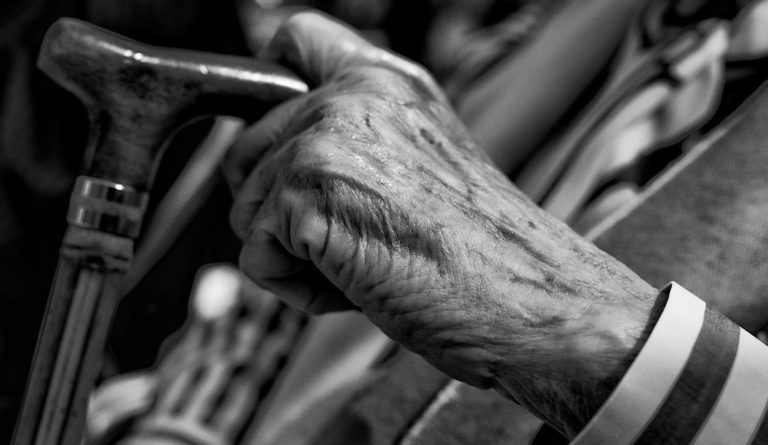Social Isolation is Bad for the Mental Health of Older Adults
Close emotional relationships in old age are important for well-being, irrespective of the level of contact with family and friends.

Read Time: 4 minutes
Published:
Social integration and having positive social relationships are important for our health and well-being, especially in old age. Social isolation, the flip side of social integration, is associated with many negative health outcomes, including mortality. The risk of death for people who are socially isolated is as great as the risk of death for people who smoke 15 cigarettes a day. As such, many prominent national and international organizations have now called for a greater understanding of social isolation and how to mitigate its deadly effects. These include the World Health Organization, the National Academy of Medicine, the AARP Foundation, and the American Academy of Social Work and Social Welfare’s Grand Challenges of Social Work. Addressing social isolation among older adults is critically important, as populations around the world are becoming older. For example, by the year 2040, more than one out of every five citizens in the United States will be over 65. Corresponding changes in population age distributions will mean more isolated older adults, and fewer younger family members available to provide health and social care.
…by the year 2040, more than one out of every five citizens in the United States will be over 65.
Recently, I was the first author on a journal article that examined the association between social isolation and mental health among older adults. It’s important to recognize that social isolation is manifested in different ways. People may report the absence (or low levels) of interaction with others, or they may indicate that the relationships they have with others lack emotional closeness. Our study mirrored this distinction so that social isolation was defined to reflect both objective isolation (infrequent interaction/contact with family and/or friends) and subjective isolation (diminished feelings of closeness to family and/or friends). Within each of these types of isolation, respondents could be 1) isolated from both family and friends, 2) isolated from family only, 3) isolated from friends only, or 4) isolated from neither group. Our research team used data from the National Survey of American Life, which is a nationally representative dataset of African Americans, Black Caribbeans, and Whites. We examined adults age 55 and older to see if social isolation affected their depressive symptoms and psychological distress.
We found that one in four older adults experienced some form of objective isolation, and 15% experienced some form of subjective isolation. Our analysis found that people reporting lower levels of emotional closeness (subjectively isolated) to both family members and friends had more depressive symptoms. Additionally, people who felt emotionally distant from friends experienced more psychological distress. Direct comparisons of the effects of objective and subjective isolation on depressive symptoms and psychological distress indicated that lacking close emotional relationships was associated with worse mental health, irrespective of level of contact with family and friends.
These findings show that infrequent contact with family members and friends vs. diminished emotional closeness to family and friends represent distinct aspects of social relationships.
These findings show that infrequent contact with family members and friends vs. diminished emotional closeness to family and friends represent distinct aspects of social relationships. Overall, older adults were more likely to report they had limited contact with family and friends than to indicate they were emotionally distant from family and friends. Further, having lower levels of interaction with family and friends did not necessarily indicate being emotionally distant. Finally, consistent with findings from other studies, subjective isolation was more strongly correlated with poor mental health than objective isolation.
Our study shows that it is important to be mindful of older adults’ perceptions of emotional closeness to family and friends, as this is likely to impact their mental health and well-being. Moreover, our findings highlight the importance of maintaining high-quality close relationships in old age. These relationships can help mitigate depression and psychological distress. Clinicians and health providers addressing depression and psychological distress should determine if these disorders are associated with changes in an older adult’s family or friendship network. A social worker or therapist may be helpful in reconnecting older adults to family and friendship networks, assisting older adults to form new relationships, or mending relationships in need of repair.
Feature image: Vic, Mano, used under CC BY-NC-ND 2.0



